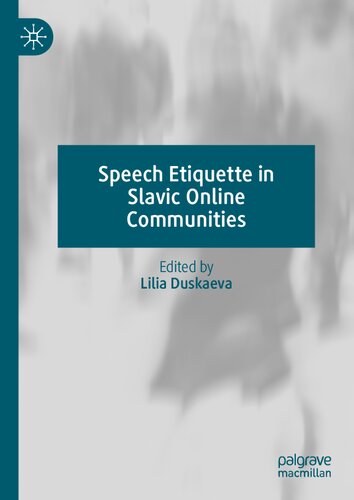

Most ebook files are in PDF format, so you can easily read them using various software such as Foxit Reader or directly on the Google Chrome browser.
Some ebook files are released by publishers in other formats such as .awz, .mobi, .epub, .fb2, etc. You may need to install specific software to read these formats on mobile/PC, such as Calibre.
Please read the tutorial at this link: https://ebookbell.com/faq
We offer FREE conversion to the popular formats you request; however, this may take some time. Therefore, right after payment, please email us, and we will try to provide the service as quickly as possible.
For some exceptional file formats or broken links (if any), please refrain from opening any disputes. Instead, email us first, and we will try to assist within a maximum of 6 hours.
EbookBell Team

5.0
68 reviewsThis edited book focuses on speech etiquette, examining the rules that govern communication in various online communities: professional, female, and ethnospecific. The contributors analyze online communication in the Slavic languages Russian, Slovak, Polish, and Belarusian, showing how the concept of speech etiquette differs from the concept of politeness, although both reflect the relationship between people in interaction. Online communities are united on the basis of common informative or phatic illocutions among their participants, and their speech etiquette is manifested in stable forms of conducting discussions – stimulating and responding. Each group has its own ideas of unacceptable speech behavior and approaches to sanitation, and the rules of speech etiquette in each group determine the degree of rapport and distancing between the participants in discourse. The chapters in this book explore how rapport and distance are established through acts such as showing attention to the addressee and increasing his or her communicative status; reducing or increasing the illocutionary power of evaluations and motivations; and evaluating one’s own or someone else’s speech. The volume will be of interest to researchers studying online communication in such diverse fields as linguistics, sociology, anthropology, programming, and media studies.